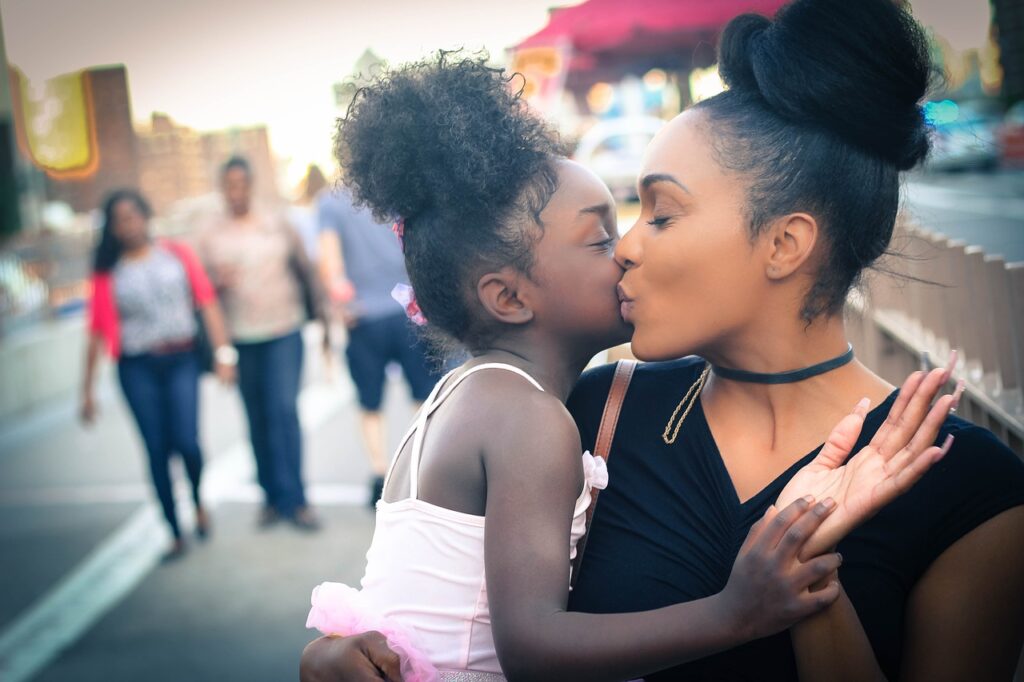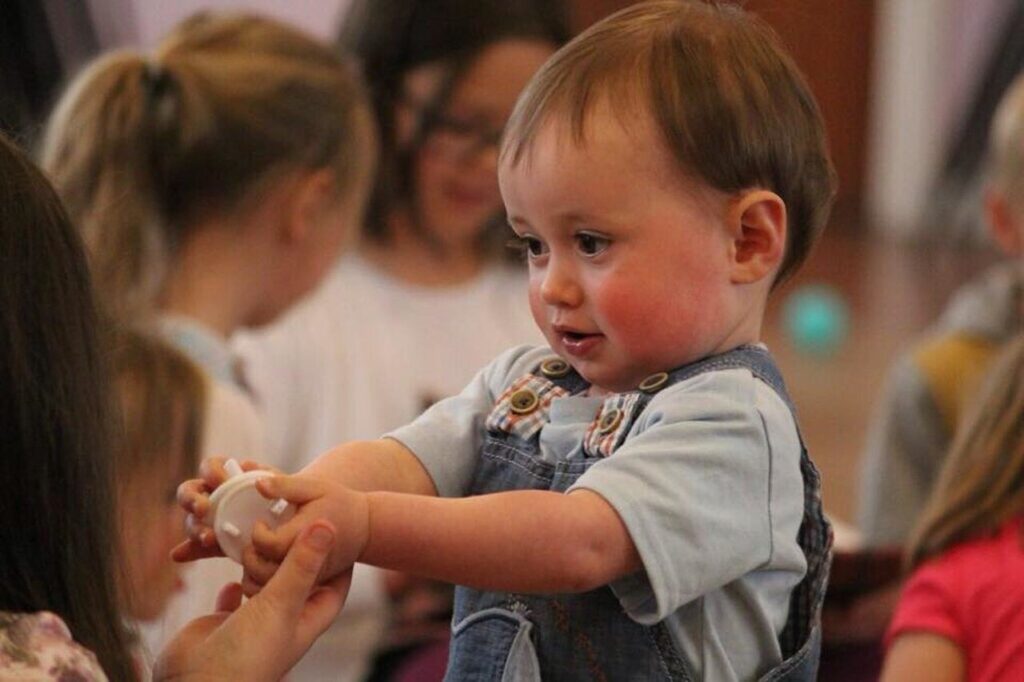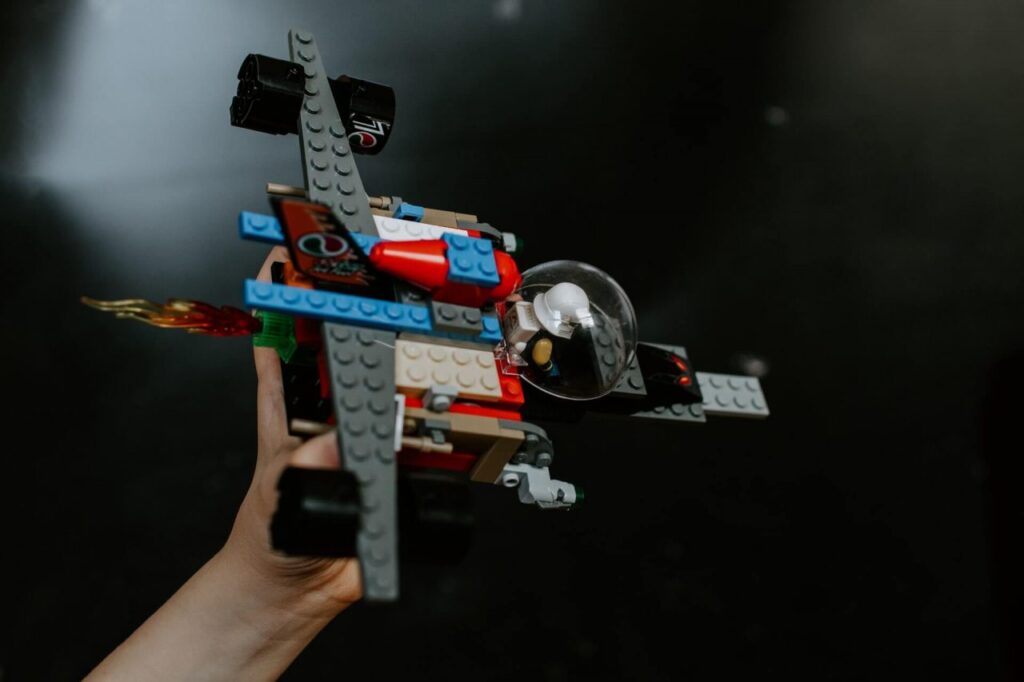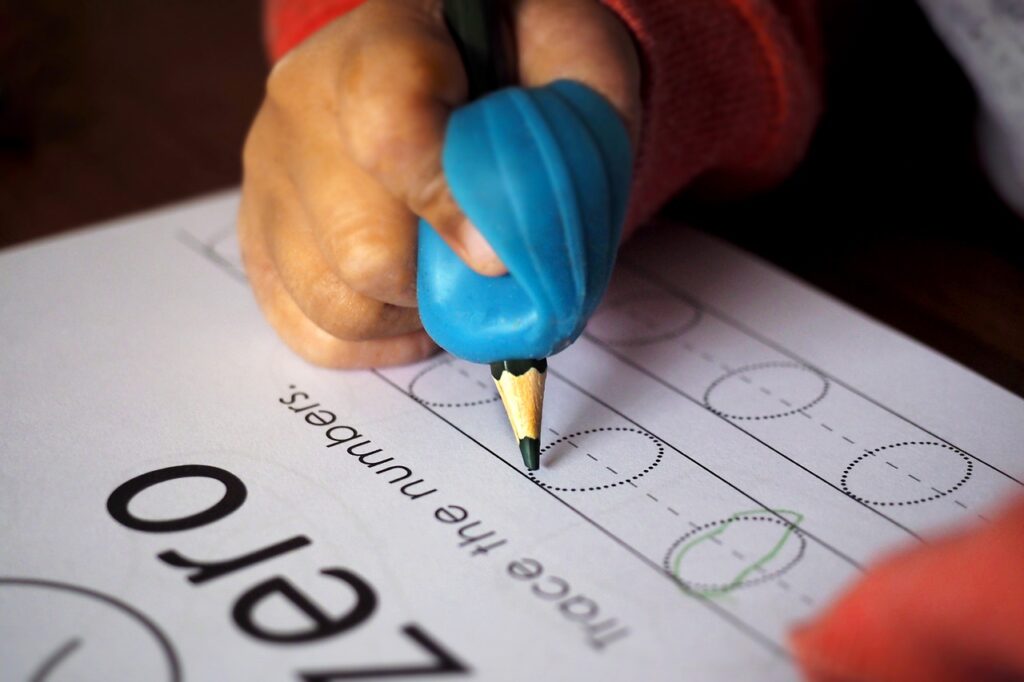When children are young, they are learning sponges. So every new experience, every word they know, every behaviour they adopt is an investment in a more fruitful future.
For young children, every experience or encounter presents a learning opportunity. They learn from everything they see, do, hear, feel, smell, and taste; everyone they interact (talk, play, laugh) with; and everywhere they go.
If you're thinking of giving your child a head start before school, it pays to send them to a child care centre that focuses on child development and early childhood education.
Research shows that early childhood education is one of the best ways to help your child develop the social, emotional and cognitive skills they need to prepare for primary school and beyond.
The importance of early childhood education cannot be overstated. Why is early childhood education so important for our little ones? A large part of critical brain development in children happens before they even start kindergarten. It impacts everything from school performance to lifelong social skills.
Parents who are on the fence about enrolling their little ones in a preschool program shouldn't hesitate. Early childhood development programs are an investment in your child's future, not a cost. There are many high-quality and affordable childcare options out there that could be an excellent fit for your family.
You can never have a greater impression on a person than when they are in their early childhood years. Most parents have always inherently understood this, and the Government is starting to catch up.
In his 2013 State of the Union address, President Obama agreed. Study after study after study reaches the same conclusion: early childhood education dramatically impacts life outcomes. Yet only 51% of 3-and-4-year-olds in the US are enrolled in full-day preprimary programs, with no improvement in the last 15 years.
Early childhood education is about honing and moulding the holistic child, which will eventually form the basis of their lifelong journey. Studies suggest that quality early childhood education preschool offers a range of benefits to children and their families and their communities. For example, in a recent report, childhood education specialists argued that preschool children learn best when interacting with their peers, receiving kind treatment from their parents and educators, and not feeling pressured to learn.
What Exactly is Early Childhood Education?

Early childhood education is basically for children between the ages of three and five. It is more commonly referred to as preschool, pre-kindergarten, daycare, nursery school or simply early education. Despite the different names, they all have the same purpose – to prepare children for elementary school.
Giving your children special attention before elementary school helps in giving them a head start for their future.
What is the Purpose of Early Childhood Education?
Early childhood education is similar to a training program given to young children. During class, children will gain the social, emotional, physical and cognitive development needed in order to help them have a brighter future. In addition, if done right, early childhood education can help develop a lifelong love of learning in children.
High-quality early childhood education gives children the best start in life. It provides important opportunities to learn and develop. Early childhood education can help your child make friends, develop independence and learn new routines. It also supports their transition to school.
Benefits of Early Childhood Education
Socialisation
Humans are very social beings, and the main concept of socialisation takes root in early childhood. In a safe environment away from family, children meet other people of their age, sowing the seeds of 'socialisation' and 'friendship' in young minds. This helps to develop self-confidence in your children by eliminating their shy nature.
Socialising with people other than the child's family in a safe environment is an essential element to the below areas.
As parents, we intuitively understand that it's important to introduce our children to other children and support their transition into their own friendship groups.
The earlier we do this, the better, as it helps children overcome shyness and gain self-confidence. If we leave this too long, we actually hinder their social development.
It just makes sense that children attend early childhood education programs; they are exposed to more diversity in their lives. In school, children will have the chance to interact with peers who are different from them. Whether it's diversity in race, class, socioeconomic status, or religion, it's beneficial to the child.
The value of experiencing diversity cannot be understated and will play a crucial role in the world's future.
There is so much diversity in the modern world, and children need to be taught to appreciate and accept the differences in society.
Each new word, experience and person can mould a young child into the person they will grow up to be. This is because it is possible to have a greater impression on a person during their early childhood days. Most parents understand this and give early childhood education the importance it is due.
Concept of Cooperation
Learning how to share, cooperate, take turns and persevere within a safe learning environment, guided by professionals who have the children's best interests at heart.
This is especially important for the first child, who may not be used to sharing with their siblings at home – while it can be a difficult lesson, it's so crucial to learn it early.
During this phase, children learn to share, cooperate, take turns and so on. These are all part of a secure social life. This is especially beneficial for an only child who is not familiar with having to share things. In the safe environment provided, the child will learn to cooperate with guidance from professionals.
Value of Education
The new environment provided in preschool gives children an entirely different perspective on the requirement of education. Grasping knowledge and applying them to their lives demonstrates the value of education.
Grasping the value of learning and education by setting an example as role models and by providing actual experiences.
While parents will always be the most important influence on a child's early life, introducing them to a preschool environment provides them with a new perspective on the importance of education that will remain with them throughout their schooling journey. It also demonstrates that you value their education highly.
Develop Good Habits
Daily routines help children feel safe and secure. They're also a great way to teach children healthy habits, like brushing their teeth or washing their hands. In addition, when children know what to expect each day, they're more likely to be calm, settled and get into good sleeping habits. Over time, this early childhood development and education will help them start taking charge of daily activities, like getting dressed and packing their bag.
Childcare is ideal for helping your child get into a good routine. Educators know what skills your child needs to develop and use various techniques to help them develop these skills in a safe, structured environment. This not only prepares your child for kindergarten but makes family life easier, so you spend less time trying to get your child to cooperate and more time enjoying each other's company.
Develop Emotional Resilience
Childcare gives your child an opportunity to develop social skills, which helps them form healthy relationships with other people. Early start child care will help them learn how to get along with other children, share and take turns, listen to others, communicate their ideas and become independent. Then, as your child grows older, they will use their talents to develop friendships that will influence their sense of identity and future.
Childcare also helps your child develop emotional resilience. Research suggests that when they start childcare, kids who attend childcare at 2-3 years of age are more likely to be attentive and better able to cope with their emotions. Studies have even found that parents benefit from sending their children to childcare, reaping social, emotional, and even financial rewards from their relationships with other families at the centre.
Develop A Lifelong Love Of Learning
A high-quality early childhood education at a childcare centre will not only look after your child safe while you work but also inspire a lifelong love of learning. In addition, access to early childhood education can provide children with social and cognitive experiences that help them become independent and develop a positive attitude to learning. These skills help your child settle into primary school and drive their academic success4.
Whether your child is starting school next year or a few years, consider giving them an early start child care by sending them to a childcare centre that provides high-quality early childhood development education in fun, caring and supportive environment.

One of the significant benefits of early childhood education is that it builds a love of learning that lasts well past the preschool years.
In preschool, children's lessons are presented as fun games and activities. They get to discover all these new things about the world they're living in. There is also exciting music, art, and toys they don't have access to at home.
These early exposures inspire children to want to know more. They develop a passion for knowledge that will last them a lifetime.
Improved Self-Esteem and Confidence
When children attend preschool programs, they experience tons of positive reinforcement. They also have positive interactions with their teachers and their classmates.
These early interactions build up children's self-esteem at an early age. This confidence will carry them throughout life.
Our programs work with each family to build your child's self-esteem in a positive and loving environment.
Staying Active and Healthy
Everyone knows that children don't like to sit still for very long. So in recent years, there has been a push to develop curriculums that emphasise learning through movement.
When children attend a school that emphasises physical activity, they get to learn and stay active simultaneously. Your kids will have access to a structured outdoor time where they can play on the playground or run around and explore nature.
Whether your child is engaging in sports or playing tag with other children, the important thing is they're getting up and moving. Getting into the habit of being active at an early age is key to building healthy lifelong habits.
Nurturing a child's mind and body at an early age is key to overall lifetime health.
Early Childhood Education Boosts Creativity
One of the best things about early childhood education programs is giving kids lots of opportunities to get creative and messy. But, let's be realistic; most parents are less than thrilled to get out the messy paints and other arrays of art supplies.
Art projects are a vital component of early childhood education programs. For example, children can learn about the fall and paint leaves or make the classic hand turkeys while learning about Thanksgiving. Kids love to paint, make arts and crafts, and get messy.
Another significant part of preschool programs is exposure to music. Kids get to sing, play instruments, and learn about sound at an early age. Music is just as important as things like reading and writing.
Making music, clapping, dancing, and other fun activities can help develop children's fine motor skills. For example, singing songs can build brain and body coordination. The skills that children learn while participating in music contribute to the child's overall brain development.
Teamwork
A person's teamwork capability is based on their respect for others opinions, listening skills and mentality towards equality. All these qualities should be taught at a young age. Therefore, many preschool activities are focused on teamwork and help children improve their attitude towards working as a team.
Demonstrating and instilling the importance of teamwork can teach respect for the opinions of others, listening, cooperation and equality.
Many preschool activities are centred around teamwork for this very reason; a person who learns how to work in a team at an early age will ultimately be more socially attuned and more employable!
Concentration
During preschool years, children explore at every opportunity to discover new experiences, new friends and new environments. This is because their minds are so lively and imaginative.
As early childhood educators, we need to balance this zest with the ability to listen, follow directions, attend to tasks and participate in group activities to develop the critical life skill of concentration.
The involvement in preschool tasks and activities demands higher levels of concentration from a child. In addition, the repetitive occurrence of the activities helps them to improve their concentration skills.
Helping Brain Development In Young Children
Children's brains are influenced by both their genes and their environment. Babies are born ready to learn, with around 90 percent of brain development occurring in the first five years of life. The early years are important for how the brain grows, strongly influenced by what's happening in a child's environment and their interactions with the people around them.

Vision and hearing pathways develop first, followed by early language skills and higher cognitive functions. For example, a child's vocabulary often quadruples between ages two and four. These connections become more complex over time as children grow, and influencing brain development to create positive learning behaviours from an early age is much easier than rewriting it later.
Research shows that children who participate in quality preschool programs are more likely to arrive at school equipped with the social, cognitive and emotional skills they need to help them to continue learning. These benefits extend well beyond primary school. Higher levels of educational success, employment and social skills have all been linked to moderate levels of participation in quality early childhood education.
Learning New Routines
By attending early education, your child can learn to adapt to a new routine outside the home. Routines can positively influence a child's emotional and cognitive development, and knowing what to expect encourages them to feel secure and comfortable.
Routines can help children manage the expectations of their environment and reduce problematic behaviours such as temper tantrums. When developing daily routines, early childhood teachers and educators will consider a mix of activities that are active/passive, indoor/outdoor, and child-directed/adult-directed.
Routines are also planned according to children's ages to make time for naps, incorporate any individual requirements or medical needs, and to accommodate their attention spans and other aged-based needs.
Developing Independence
For many children, participating in early childhood education is the first significant amount of time they spend away from their families. Being in a new environment, away from home, can help children to build their confidence and discover their identity.
As part of a child's growing independence, they develop key self-regulation skills between the ages of three and five years old. These skills may include concentrating, sharing and taking turns. For example, toddlers may show self-regulation by waiting to play with a toy or paying attention to someone talking to them.
Self-regulation skills are important to help children develop confidence and independence, grow and understand who they are, and form friendships. Parents, carers and early childhood educators are all important role models for demonstrating healthy methods of self-regulation.
Benefits That Last a Lifetime
The benefits that children gain in preschool programs follow them throughout the rest of their life. Whether it's going to college or purchasing a home, many lifetime successes link to early access to educational programs.
Read on for additional data on the lifetime benefits of enrolling your child in an early education program.
- Attendees of early childhood education programs are less likely to commit a felony and go to prison.
- Children who attend preschool are more likely to go to college, making them more likely to earn a higher income in their lifetime.
- People who attended early childhood education programs are more likely to own their own house later in life. Homeownership is a crucial factor in wealth building.
- There is less chance that people will need government assistance later in life if they attend preschool as a child. This concept supports the argument of investing in education early and saving money in the long run.
- Children who participate in early childhood education programs are less likely to have dependence issues later in life. According to the National Survey on Drug Use and Health, almost 20 million Americans age 12 and older had a substance abuse disorder in 2017.
- Determine the type of childcare service you are looking for. ...
- Type of Education and Philosophy. ...
- Location of the childcare centre. ...
- Availability & Waiting List. ...
- Childcare Costs. ...
- Flexibility. ...
- Licencing and Registration.
When choosing a childcare centre, you as the parent have the right to expect it will provide a safe, supportive place for your child's self-identity and awareness to grow. It's important that educators in your choice of centre value each child's individual interests and opinions and treat them with respect and love.
A high-quality childcare center has a friendly and warm environment conducive to learning. Be sure to pick a daycare with clean and sanitary buildings and classrooms. Check their toys and learning materials to make sure they are safe and child-friendly.

